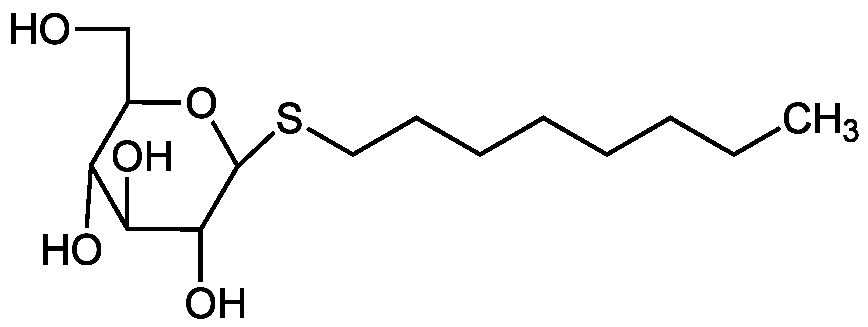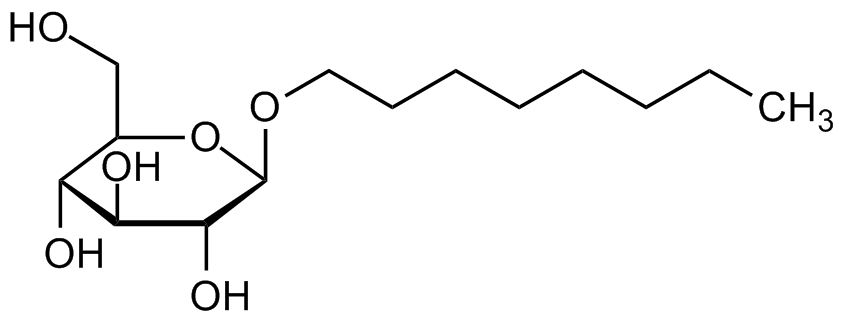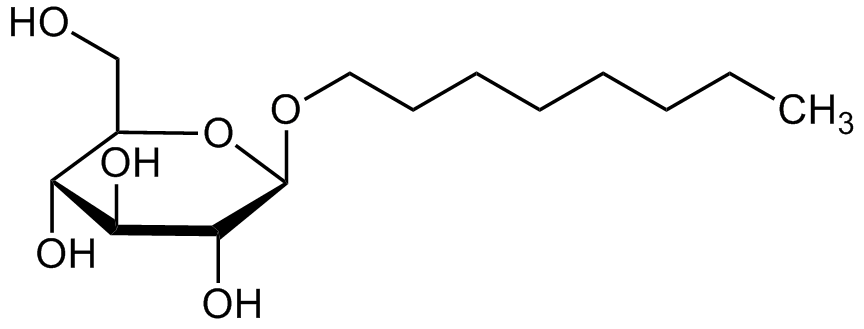
Chemical Structure
n-Octyl-beta-D-thioglucopyranoside (ultrapure) [85618-21-9]
AG-CC1-0005
CAS Number85618-21-9
Product group Chemicals
Estimated Purity>99%
Molecular Weight308.4
Overview
- SupplierAdipoGen Life Sciences
- Product Namen-Octyl-beta-D-thioglucopyranoside (ultrapure) [85618-21-9]
- Delivery Days Customer10
- CAS Number85618-21-9
- CertificationResearch Use Only
- Estimated Purity>99%
- Molecular FormulaC14H28O5S
- Molecular Weight308.4
- Scientific DescriptionChemical. CAS: 85618-21-9. Formula: C14H28O5S. MW: 308.4. Non-ionic detergent. For functional solubilization, purification and crystallography of membrane proteins. The thioether linkage makes it resistant to degradation by beta-glucosidase enzymes. For the stabilization and activation of enzymes. Used for cell lysis experiments. - Non-ionic detergent. For functional solubilization, purification and crystallography of membrane proteins. The thioether linkage makes it resistant to degradation by beta-glucosidase enzymes. For the stabilization and activation of enzymes. Used for cell lysis experiments.
- SMILESCCCCCCCCSC1OC(CO)C(O)C(O)C1O
- Storage Instruction-20°C,2°C to 8°C
- UNSPSC12352200



